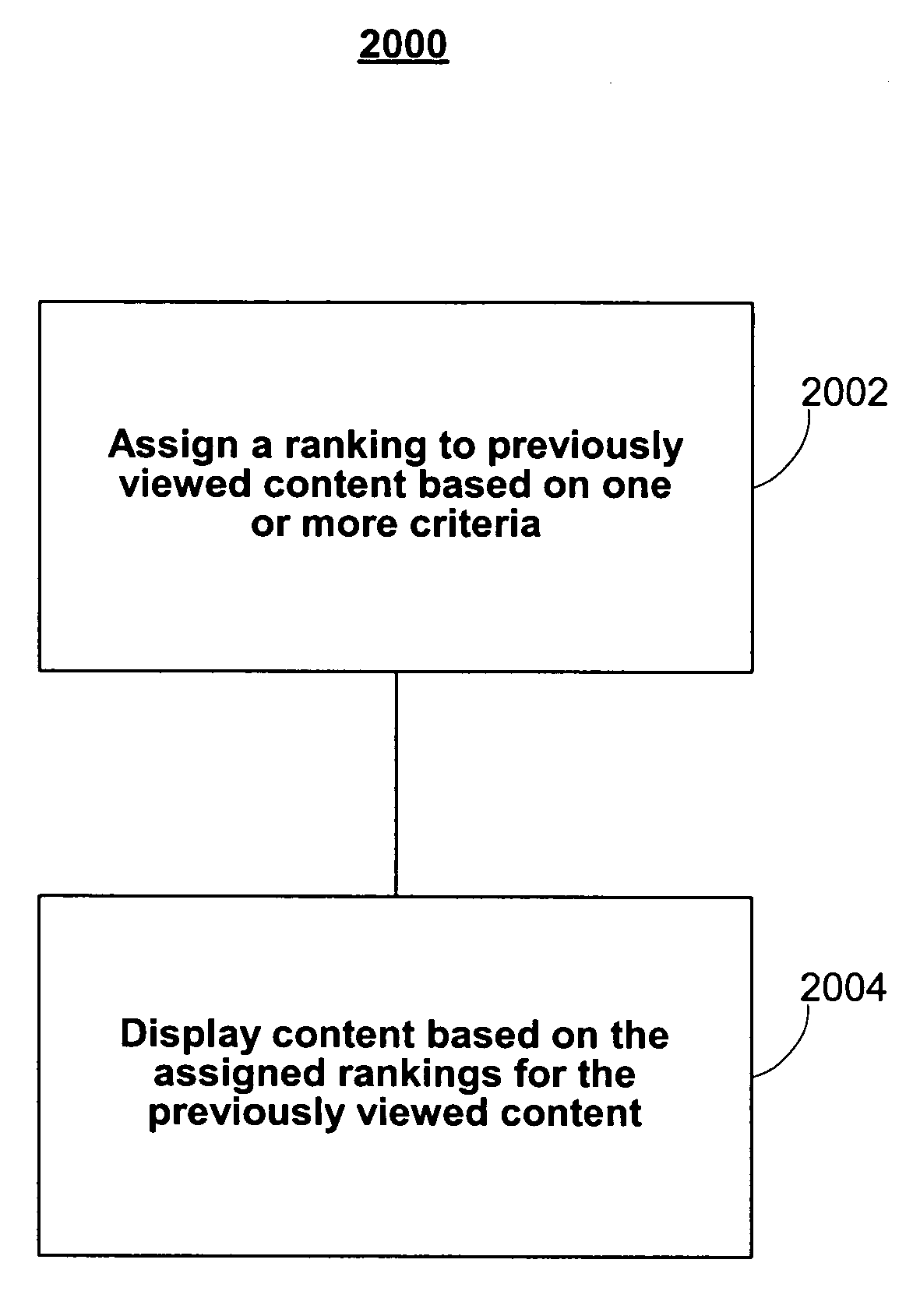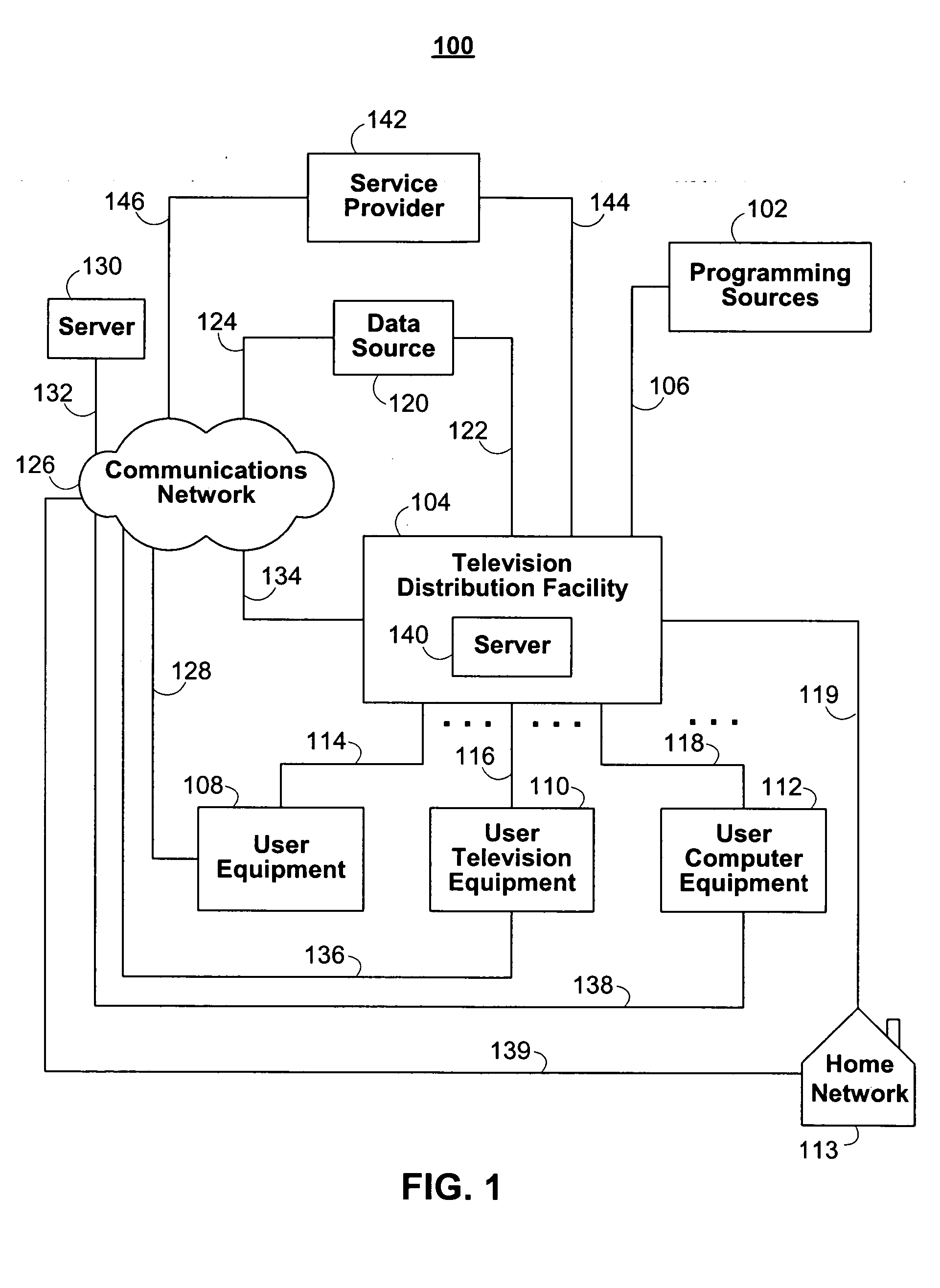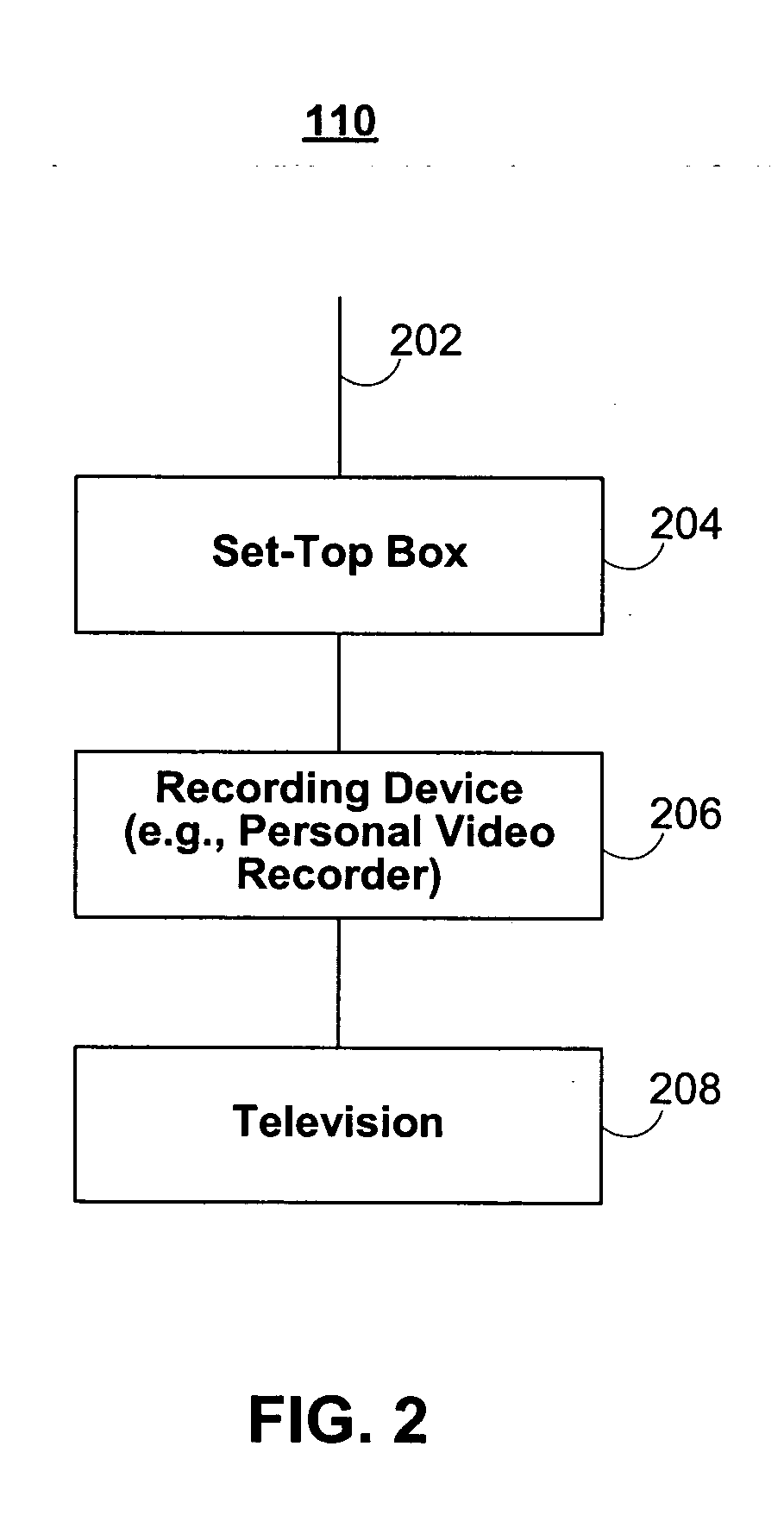Systems and methods for managing content
a content management and content technology, applied in the field of systems and methods for managing content, can solve the problems of inability of known systems to identify previously viewed content, and then make use of such information, and the depth of information concerning previously viewed content that is generated, and do not enable users to view in a detailed manner, if at all, and lack sophisticated ways of representing such conten
- Summary
- Abstract
- Description
- Claims
- Application Information
AI Technical Summary
Benefits of technology
Problems solved by technology
Method used
Image
Examples
Embodiment Construction
[0049] The amount of media available to users in any given media delivery system can be substantial. Consequently, many users desire a form of media guidance, an interface that allows users to efficiently navigate media selections and easily identify media that they may desire. An application which provides such guidance is referred to herein as an interactive media guidance application or, sometimes, a guidance application.
[0050] Interactive media guidance applications may take various forms depending on the media for which they provide guidance. One typical type of media guidance application is an interactive television program guide. Interactive television program guides are well-known guidance applications that, among other things, allow users to navigate among and locate television programming viewing choices and, in some systems, digital music choices. The television programming (and music programming) may be provided via traditional broadcast, cable, satellite, Internet, or ...
PUM
 Login to View More
Login to View More Abstract
Description
Claims
Application Information
 Login to View More
Login to View More - R&D
- Intellectual Property
- Life Sciences
- Materials
- Tech Scout
- Unparalleled Data Quality
- Higher Quality Content
- 60% Fewer Hallucinations
Browse by: Latest US Patents, China's latest patents, Technical Efficacy Thesaurus, Application Domain, Technology Topic, Popular Technical Reports.
© 2025 PatSnap. All rights reserved.Legal|Privacy policy|Modern Slavery Act Transparency Statement|Sitemap|About US| Contact US: help@patsnap.com



